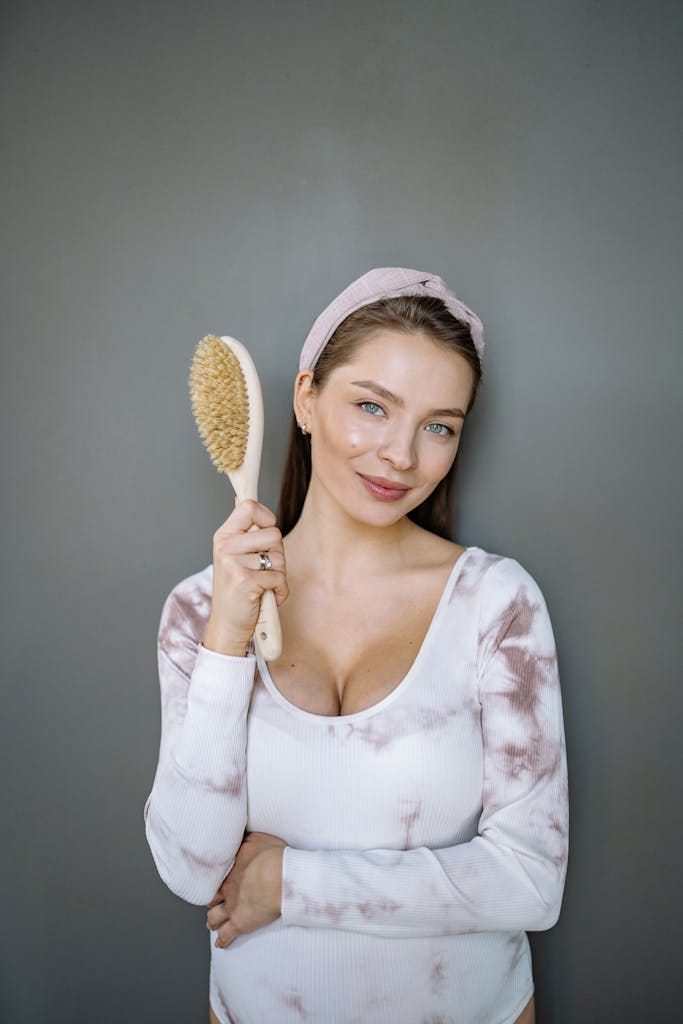FREE SHIPPING OVER $50
How a Simple Diet Tweak Can Help Prevent Gray Hair
Aging gracefully is about maintaining your youthful vibrancy—inside and out. While genetics play a significant role in when and how our hair turns gray, emerging research indicates that what you eat can have a profound effect on your hair’s pigmentation. In other words, a simple tweak to your diet might be one of the most effective ways to delay the onset of gray hair.
In this article, we’ll explore the connection between nutrition and hair color, discuss the key nutrients involved in preserving natural hair color, and explain a straightforward diet tweak that could help prevent premature graying. Along the way, we’ll share practical tips and science-backed insights to help you harness the power of nutrition in your quest for lifelong, vibrant hair.
The Link Between Diet and Hair Pigmentation

Your hair color is determined by pigment-producing cells called melanocytes. Over time, these cells gradually produce less pigment, which leads to gray hair. While many factors contribute to this process—including stress, genetics, and overall health—a growing body of evidence suggests that oxidative stress and nutrient deficiencies can accelerate the loss of pigmentation.
Oxidative stress occurs when harmful free radicals overwhelm your body’s natural antioxidant defenses. This imbalance not only affects your skin and internal organs but also damages melanocytes, the cells responsible for hair color. Nutrient-rich foods that combat oxidative stress may help maintain healthy melanocyte function and, in turn, preserve your natural hair color for longer.
This connection means that by making mindful dietary choices, you can support your body’s ability to fight oxidative damage and potentially delay gray hair. The key lies in boosting specific nutrients that have been linked to healthy hair pigmentation.
The Role of Key Nutrients in Preventing Gray Hair
Several nutrients play a pivotal role in maintaining hair color and overall hair health. Let’s explore the most critical ones and how they work:
- Vitamin B12 and Folate
Vitamin B12 and folate are crucial for cellular repair and DNA synthesis. Deficiencies in these nutrients have been linked to premature graying. Including foods like lean meats, dairy, and leafy greens can help ensure adequate levels for healthy hair pigmentation. - Copper
Copper is necessary for the activity of tyrosinase, an enzyme involved in melanin production. Low copper levels can impair this process, leading to early graying. Shellfish, nuts, seeds, and whole grains are excellent sources of copper that support melanocyte function. - Antioxidants (Vitamin C and E)
Antioxidants such as vitamin C and vitamin E neutralize free radicals and reduce oxidative stress, protecting melanocytes from damage. Citrus fruits, berries, nuts, and green leafy vegetables are rich in these vitamins, contributing to overall hair health. - Omega-3 Fatty Acids
Omega-3 fatty acids have anti-inflammatory properties that can help maintain cell membrane integrity, including those of melanocytes. Fatty fish, flaxseeds, and walnuts provide a healthy dose of omega-3s, which may help preserve natural hair color. - Catalase-Boosting Foods
Hydrogen peroxide can accumulate in hair follicles, bleaching the pigment and causing gray hair. Catalase is an enzyme that breaks down hydrogen peroxide into water and oxygen. Certain foods, like broccoli and other cruciferous vegetables, may help boost catalase production and protect hair color.
The Simple Diet Tweak: How to Support Hair Pigmentation
The simple diet tweak that might help prevent gray hair is to incorporate a targeted increase in these key nutrients through your daily meals. Instead of relying on supplements alone, focusing on whole, nutrient-dense foods can make a significant difference over time. Here’s how you can adjust your diet:
- Emphasize Lean Protein and Green Vegetables
Choose meals that include lean sources of protein like chicken, fish, or legumes alongside a variety of green vegetables. These foods provide essential vitamins, minerals, and antioxidants crucial for hair health. - Incorporate a Copper-Rich Snack
Swap out your regular snack for one that’s high in copper. For instance, a handful of almonds or a small serving of sunflower seeds can be an excellent way to boost your copper intake naturally. - Add Citrus and Berries to Your Diet
Start your day with a citrus fruit or a berry smoothie. These fruits are high in vitamin C, which not only supports the immune system but also provides the antioxidants needed to combat oxidative stress in your hair follicles. - Include Omega-3-Rich Foods Regularly
Integrate foods like fatty fish (salmon, mackerel), flaxseeds, or walnuts into your weekly meal plan. These foods provide omega-3 fatty acids, which are key to reducing inflammation and supporting cellular health. - Opt for Cruciferous Vegetables
Make sure to include broccoli, cauliflower, and Brussels sprouts in your diet. These vegetables are known to boost catalase production, which may help break down the hydrogen peroxide that bleaches hair pigment.
Putting It All Together: A Holistic Approach to Preventing Gray Hair
The key to preventing premature gray hair lies in a holistic approach that combines a targeted diet tweak with overall healthy lifestyle practices. Here’s a recap of the essential strategies:
- Boost Nutrient Intake:
Focus on increasing foods rich in vitamin B12, folate, copper, antioxidants, omega-3s, and catalase-boosting compounds. This creates a robust foundation for healthy hair pigmentation. - Incorporate Specific Foods:
Make a conscious effort to add lean proteins, green vegetables, citrus fruits, berries, fatty fish, cruciferous vegetables, and nuts to your daily meals. - Adopt Healthy Lifestyle Habits:
Manage stress, prioritize sleep, stay hydrated, and avoid habits that contribute to oxidative stress like smoking and excessive alcohol consumption. - Monitor and Adjust:
Regularly review your diet and lifestyle to ensure you’re meeting your nutritional needs. Small, consistent changes can lead to significant long-term benefits.
Conclusion
Gray hair is a natural part of aging, but the timing and extent of graying can be influenced by your diet and lifestyle choices. By making a simple tweak—boosting your intake of key nutrients that support hair pigmentation—you can help delay the onset of gray hair and keep your locks looking youthful. This high-impact diet strategy involves incorporating more lean proteins, green vegetables, citrus fruits, antioxidant-rich berries, fatty fish, cruciferous vegetables, and nutrient-dense nuts into your daily meals.
Related Articles
- Scientists Reveal the Vegetable Antioxidant That Fights Gray Hair
- Want to Live to 100? Experts Share 10 Easy Lifestyle Changes You Can Start Today
- Doctors Agree: This Is the Best Exercise to Fight Aging and Stay Youthful
- Want a Younger Brain? Science Says This Workout Combo Beats Crosswords
- I Slashed My Metabolic Age by 18 Years After 50—Here’s Exactly How You Can Too







